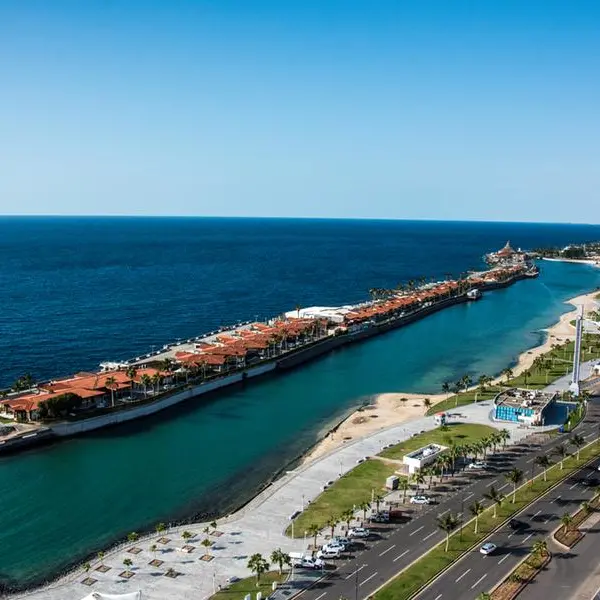PHOTO
Barry Johnson, Founder and Executive Chairman, 7 Generations Africa (7GA)
7Generations Africa (7GA) is one of a small but growing number of firms addressing what might be described as an enviable chal- lenge – how to preserve generational wealth. As the continent grows, opportunities to accrue mega-wealth are also increasing.
The 2024 Africa Wealth Report predicts a 65% rise in millionaires by 2033, but as Barry Johnson likes to point out, retaining wealth is often more difficult than achiev- ing it in the first place.
The figures on cross-generational wealth retention are sobering. “The data says roughly 70% of wealthy families lose their wealth by the second generation. By the third - that’s 75-80 years – that percentage grows to 90%,” he tells African Banker.
Family offices differ in size and struc- ture and governance but are widely con- sidered as a dedicated entity that helps ultra-wealthy families manage their fi- nancial, governance and legacy affairs. In essence, family offices are privately held companies that manage the wealth, and some personal affairs, of families with assets that typically exceed $50m. Services that family offices provide include investment management, tax planning, estate planning, philanthropy coordination and administrative support, all tailored to the family’s specific needs and objectives.
Family offices can be structured as single-family offices, serving one family exclusively, or multi-family offices, which cater to multiple families, offering shared resources and expertise.
Johnson, who has a multi-dimensional view of the world informed by 30 years of work experience in family offices and Wall Street, explains that the value of a family office extends far beyond money management. “A well-structured family office doesn’t replace financial advisors or external professionals; rather, it serves as a governance platform that orchestrates and optimises their contributions to pro- tect and grow wealth across generations – always attuned to the values, culture, and aspirations of the family.”
In addition to helping wealthy families themselves, Johnson sees family offices as a valuable driver and engine for national economic development. This conviction comes from his experience working in senior economic development roles for the US White House, including his position as the first chief foreign direct investment (FDI) official for the US.
He believes that family offices and wealthy African families constitute a unique and potent force for positive change across the continent.
“Wealthy families in Africa and from across the world can provide growth capi- tal supporting Africa’s development while also benefiting from the financial returns their growth capital helps generate in the high-growth market that Africa has now become.
“Because wealthy families have finan- cial capital, they also have reputational, social and other capital – meaning a wealthy family can support a project as a for-profit project or as a philanthropic project. Just the involvement of that fam- ily will cause others to certainly look at it and probably be more likely to support it.”
In that sense, they can catalyse invest- ment into promising ventures that are often overlooked by conventional inves- tors, thus helping to create more wealth and jobs. “They can be influencers who have the capacity to cause others to come on board. Even if they put a drop in the water, they can cause others to pour.”
Johnson and 7GA support these mutu- ally beneficial connections with fami- lies, governments, development finance institutions, and others looking to drive Africa’s progress, while generating posi- tive financial returns as well.
Retaining or squandering wealth
What separates families that have main- tained wealth over several generations from those that are unable to do so? “What you would see in families that have had money for hundreds of years is an atten- tion to family knowledge, education, [and] readiness and preparedness for wealth ownership by generations – starting at an early age and through to the adults.”
Families that retain wealth, he says, pay attention to their values and have clear missions and visions. They also have to carefully manage the various outside vendors and service providers that cater to the business and personal needs of the family.
A holistically focused family office, he argues, allows families to achieve comprehensive governance profession- ally. “This way, they get a combination of ‘offence’ – unlocking, creating and multiplying wealth – and ‘defence’, which is about protecting and preserving what has been made.”
While Johnson notes that family offices are most effective for those with at least $50m (when the scale justifies the operational costs), 7GA’s market focus is on families with $100m or more in net worth.
He emphasises that beyond wealth, the key factor is having the right mindset. “Regardless of what wealth you have, you should adopt a family office mindset,” he advises.
“The family office mindset is one that is rooted in the family’s interests and vision, and it thinks long-term. It understand the com- plex world that ultra wealth gener- ates spontaneously and the great opportunities and threats that co- exist.
“It speaks about sustaining the fortune, the family unity and well- being, and the positive impacts that a family can have in the current generation and for hundreds of years hence,” he adds.
Focussed on the long arc of time
Successfully preserving wealth, Johnson says, requires an inte- grated approach. “As one of my Chief Information Officers likes to say, you can think of it as being like travelling in a vessel through changing times and circumstances, both inside and outside of the vessel.
“That means life is changing and the family is changing, but you want to do that successfully for seven generations or more. And the way that you do that, first of all, is by projecting your sights on many generations into the future, much like a great endowment does,” he says.
“This is a particular focus of 7 Genera- tions Africa,” he explains. “We’re really focused on the long arc of time but as it turns out, the strategies and approaches that we use to move towards seven gen- erations, is also what you would do to create better performance in the near- term and current generation.”
To illustrate his point, Johnson shares an interesting statistic. “After the first generation, less than 10% of wealth loss cases are due to investment mismanage-ment. Some even say 5%. The reasons for the loss are more often non-finan- cial management reasons. It’s the other things. It’s the readiness. It’s steadiness. It’s understanding. It’s the relationships within the family itself and between the family and the ever-growing orchestra of experts out there.”
To further buttress the point, Johnson, whose career includes working with global musical icons as a Sony Music executive, points to Michael Jackson, the late pop music megastar who famously ran into financial troubles at various points in his life, despite having an army of lawyers and financial advisors tasked with pre- venting exactly that from happen- ing. An integrated approach – the type that family offices offer – is much more attuned for this task, Johnson says.
Johnson also points to the dis- tinction between making mon- ey and preserving wealth. “Say you’ve made a billion dollars from widget making. The challenge is you are an expert in widget mak- ing and not, probably, wealth it- self.”
For such a person, a family of- fice is an ideal arrangement for managing their wealth and af- fairs, so they can concentrate on the day-to-day running of the business that brought the wealth in the first place - “the goose laying the golden egg”, as he de- scribes it.
There are some 10,000 family offices around the world today but, depending on who you ask, only about 30-60 in Africa, catering to an estimated 1,500-2,000+ fami- lies with the kind of wealth that justifies having a family office. This despite the fact that the con- tinent is currently growing wealth at a faster clip than many other continents. Johnson says that the lack of structures to preserve wealth means that about 70% to 90% of the private wealth on the continent could be lost in one to three generations.
“You really need these holistic struc- tures, mindsets and professionalised sys- tems in place to help protect this future,” he stresses. Without local systems to help you do that, it may fall to foreign entities to do so; and that, Johnson says, comes with some risks.
“They may not have the same love for the countries, values, culture and history of Africa,” he cautions. This includes a love of working with Africa’s people to use their knowledge, skills, energy, and monetary wealth, along with the conti- nent’s other resources, to drive economic development on the continent rather than elsewhere. Strategic use of family offices can benefit all of Africa, he is convinced – it creates and realises value for itself and the world. n
FACTS ABOUT FAMILY OFFICES
Despite the rapid rise of Ultra High Net Worth families in Africa (>$30m net worth), only 1-2% have structured family offices, compared to 20-35%+ in North America and Europe.
Africa currently has between 30-60 family offices serving an estimated 1,500-2,000+ families with wealth exceeding $100m, leaving a massive gap in governance infrastructure.
Families without governance struc- tures spend, on average, 30-50% more on financial services due to lack of over- sight and misalignment among service providers.
Single family offices globally control an estimated $6trn in assets, more than the entire hedge fund industry.
Unlike institutional investors, fam-ily offices are ‘patient capital’, allowing them to take a long-term view of Africa’s transformation.
‘The family office mindset understands the complex world that ultra wealth generates spontaneously and the great opportunities and threats that coexist.’
‘You can think of it as being like travelling in a vessel through changing times and circumstances, both inside and outside of the vessel.’
© Copyright IC Publications 2022 Provided by SyndiGate Media Inc. (Syndigate.info).




















